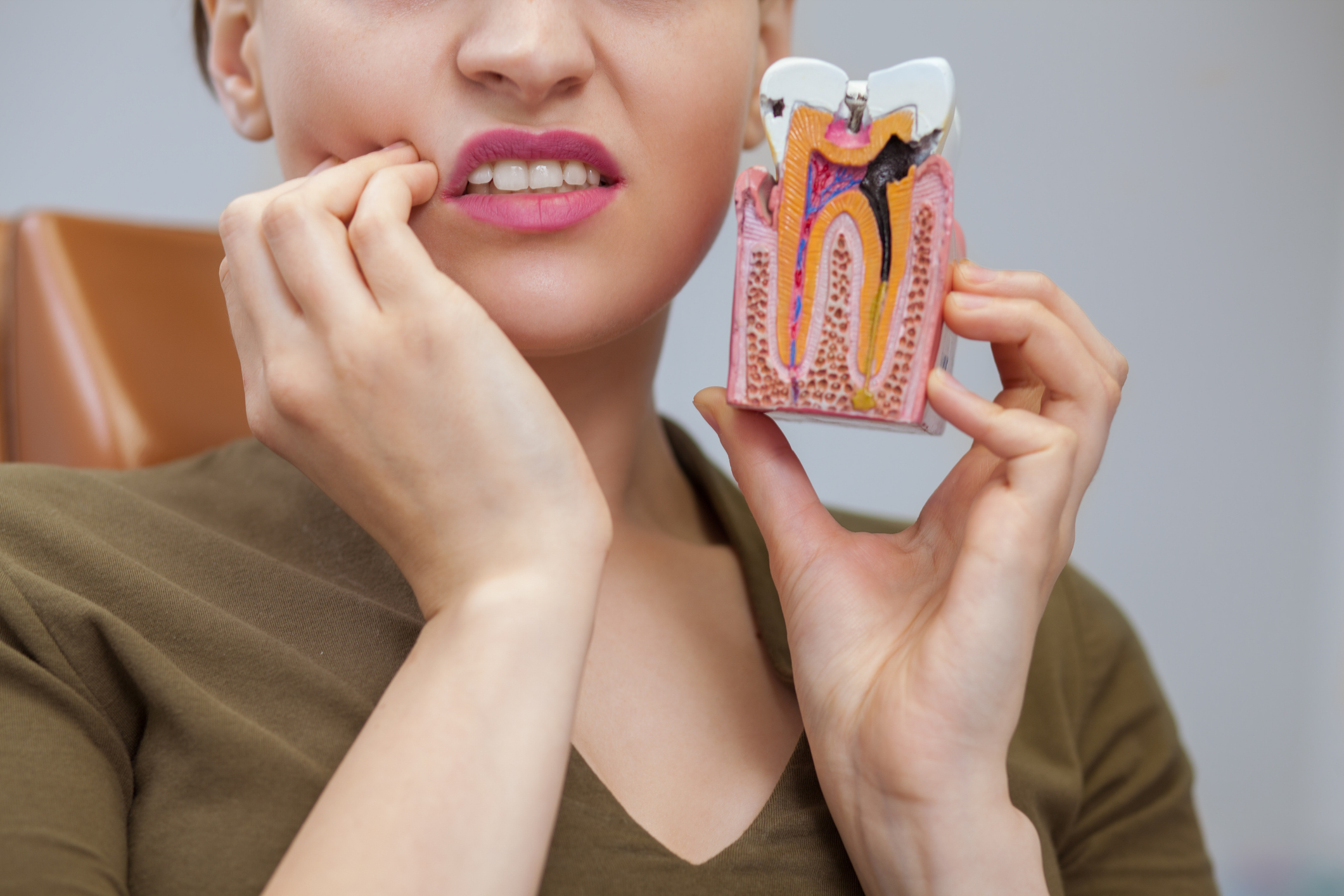What Is Considered a Dental Emergency?

A dental emergency can occur at any time. Even if you’ve been diligent about your dental hygiene, anything could happen to call for immediate care. However, it may not always be evident if your emergency requires urgent dental care.
Chroma Dental is here to answer those questions on emergency dentistry and reveal the simple tips for taking care of your teeth to avoid future emergencies.
How to Know if You’re Facing a Dental Emergency
- One or multiple teeth have been knocked out or broken off entirely
- Pain persists and is not relieved with over-the-counter painkillers like Ibuprofen or Acetaminophen
- Swelling and pain in the gums or face
- Gums that are spongy to the touch, receding from your teeth, or bleeding without any apparent cause
Most Common Dental Emergencies
While there could be a wide range of concerns, some emergencies tend to be more common than others. The most frequent types of dental emergencies include:
Sudden Unexplained Toothache or Mouth Pain
Toothaches can be caused by cavities, plaque buildup, or an infection, among other things. If you experience sudden, severe, unexplained tooth pain of any kind, it’s essential to see your dentist immediately.
A dull toothache isn’t always a problem, but it’s still worth consulting your dentist as soon as possible.
A Broken, Chipped, or Knocked-Out Tooth
If a tooth gets chipped or broken off and has left sharp fragments behind, causing mouth trauma, you should visit an emergency dental clinic right away.
On the other hand, if your tooth has been knocked out, seek help immediately. It’s imperative to replant a knocked-out tooth within 30 minutes for it to have the best chance of survival and repair.
A Lost Filling or Crown
In most cases, losing a filling or a crown doesn’t necessitate an emergency visit. However, if accompanied by severe pain, seeking help immediately is the best course of action.
Alternatively, a deeply drilled filling that goes missing can leave underlying nerves exposed. This can eventually lead to an infection and escalating pain if left untreated.
Bleeding or Swollen Gums
Gum irritation may indicate an underlying medical or dental problem, particularly if it persists without stopping and causes discomfort and swelling. Bleeding gums without a clear cause need investigation and diagnosis by a dental professional.
Swelling in Your Face or Mouth Area
Painful swelling around your mouth is a sign of infection in the soft tissues surrounding your teeth. These symptoms are likely caused by an infection in the tissue next to one or multiple teeth. In this case, you might need some sort of antibiotics to clear up the infection.
Exposed Nerve in a Tooth
Tooth sensitivity may occur as minor dental discomfort or as a painful sign of a more serious issue. It is caused by damage to the tooth, exposing the nerve. An exposed nerve can be caused by either recession of the gum or damage to the enamel. If left untreated, this can lead to excruciating pain, and even permanent damage requiring an extraction.
Abscessed Tooth
An abscess is a pus-filled pocket that can form in the gums, on the roots of teeth, or around dental implants. Some symptoms of an abscess include:
- Elevated temperature
- Tooth sensitivity to heat and cold
- Acute tooth pain that lasts for days, weeks, or even months
- Sore neck lymph nodes
- A swollen face
- A pimple-like sore near the afflicted tooth
If you have an abscess, it’s vital to treat it with antibiotics or surgery. Don’t take risks with this sort of infection: it’s serious and can potentially be fatal. Leaving an abscess untreated could lead to tooth extraction, damage to other teeth or gums, or even an infection in your jawbone. A tooth abscess can also spread to the brain.
How to Avoid Potential Dental Emergencies
There are several ways you can avoid the need for emergency dental services and minimize your chances of experiencing unprecedented dental issues. Adhering to these nine simple guidelines will help prevent the most common risk factors:
✓Brush and floss daily: plaque buildup is what causes most dental emergencies.
✓Maintain regular checkups: visiting your dentist twice a year for professional teeth cleaning helps remove any buildup that could otherwise lead to further issues.
✓Don’t ignore symptoms of pain or infection: this is important to avoid unnecessary discomfort, or prevent the problem from worsening.
✓Avoid hard or sticky foods: these can cause dental problems such as cavities or chipping and breaking of teeth.
✓Treat your teeth kindly: don’t use your teeth to open packaging, pry things open, or crunch on ice.
✓Drink lots of water: dehydration can lead to dry mouth, a common precursor to dental emergencies.
✓Avoid acidic drinks: these will gradually eat away at tooth enamel.
✓Avoid sugary foods and drinks: high sugar content can create an environment for bacteria to thrive.
✓Don’t smoke or chew tobacco: tobacco is full of chemicals harmful to teeth, gums, and the surrounding tissue. It’s also a proponent of gum disease.
Taking preventative measures is always the best route to pick when it comes to dental hygiene. Make sure to put in a daily effort caring and maintaining your oral health.
Meanwhile, if you are experiencing severe or sudden pain, it’s essential to contact a North York dentist as soon as possible. Most dental emergencies are preventable but can become much more difficult (and expensive) to resolve if left untreated.
Chroma Dental provides a variety of dental care services for your teeth needs. From teeth bonding to emergency dental care we will help you find the best treatment for your smile! Call us today.
